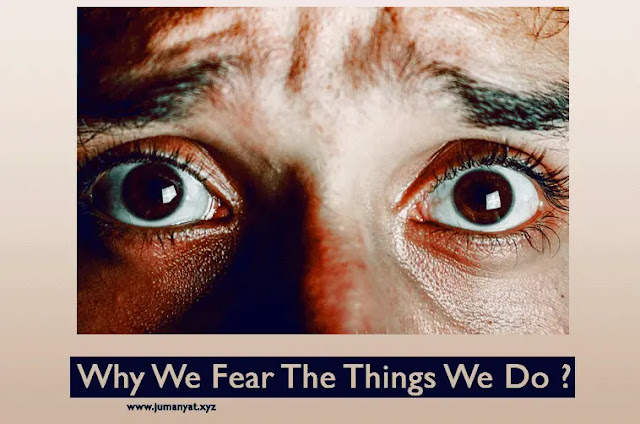The amygdala is probably one of the smallest structures in the human brain. It’s just a tiny mass of neurons (Bailey, 2014). It’d be easy to dismiss it, but you shouldn’t-and here’s why. The amygdala has a lot on its plate. For one, it controls the secretion of hormones that are responsible for fear and aggression (Bailey, 2014). It also interacts with the hippocampus to deal with your memory (Bailey, 2014). It’s no wonder, then, that the amygdala is what is responsible for controlling your phobias.
Why We Fear The Things We Do ?
What exactly is a phobia? How do you know if you have one?
Phobias. Everyone has at least one phobia that they are scared of, even if there is no easy explanation for that fear. No one is totally fearless. But just because you have a phobia-doesn’t mean you can’t overcome it. What exactly is a phobia? How do you know if you have one? It’s pretty simple to figure out. A phobia is an exaggerated, usually inexplicable and illogical fear of a particular object, class of objects, or situation (Webster, 2015). If you have a phobia, more than likely you are aware of it.
What is the cause of phobia?
But what causes them? Is it innately born like brown hair or blue eyes? Or is it something we learn in our formative years? Can we form phobias at any age? To answer the first question-Is it something innately born, the answer is probably not.
The research conducted shows that a genetic link is highly unlikely (Goode, 2015). It’s much more likely that phobias are the product of our environment or experiences. Consider the possibly of a child raised in a home where the mother or father had a phobia of snakes due to a past experience.
If that child is raised in the atmosphere of fearing snakes, his or her phobia could be a product of mere conditioning-rather than the experience happening directly to them (Goode, 2015).
Experiences are the most common reasons for developing phobias(Goode, 2015). Consider the study Freud conducted on a child of his colleagues. The child had a phobia of horses. Freud explained it as a facet of the Oedipal Complex-the child transferred his fear of his large, powerful father unto the horses. Later it was revealed that the incident that caused the child’s fear of horses happened on a walk around with the nanny, when a large horse loudly collapsed and died near the child(Goode, 2015).
Two more possible options as reasons why phobias form are social conditioning and physiological disorders (Goode, 2015). Social conditioning causing phobias is a real possibility. Consider the spike in the last half century in personal hygiene.
The average TV watcher could see hundreds or thousands of ads for every kind of disinfectant out there. Take someone who already has a phobia or has the tendency to develop one, and surround them in an environment like that–Boom. Socially born phobia. No traumatic experience took place, but the bombardment convinced them in some way that this is a problem– and they need to take every possible precaution. While this phobia may be a factor in some people’s OCD involving cleanliness, i.e.
washing hands over and over until they bleed, it does not walk hand in hand in every case (Goode, 2015). Now, for physiological disorders, some professionals merely see phobias as a sub-set of the Anxiety disorder–it is just presenting itself in a different way than normal. In that case, the doctor would more than likely prescribe anti-anxiety medication as treatment. Get rid of the anxiety, get rid of the irrational phobia.
But it is important to realize that while by definition phobias are irrational, the people afflicted by them are not likely to see them that way. Phobias are real and they feel real, gripping, and the strong, intense emotions experienced by people with phobias make this no laughing matter. If a phobia is infringing on a loved one’s quality of life, then you should intervene–but do so carefully.
Do not belittle what they are going through and seek the counsel of a trained professional. Phobias seem irrational and silly to those not suffering them, and it is easy to say, “Just get over it.” But keep in mind that people who are living with phobias cannot just decide not to be afraid, just as sick people cannot just decide to be healthy instead.

Comments
Post a Comment